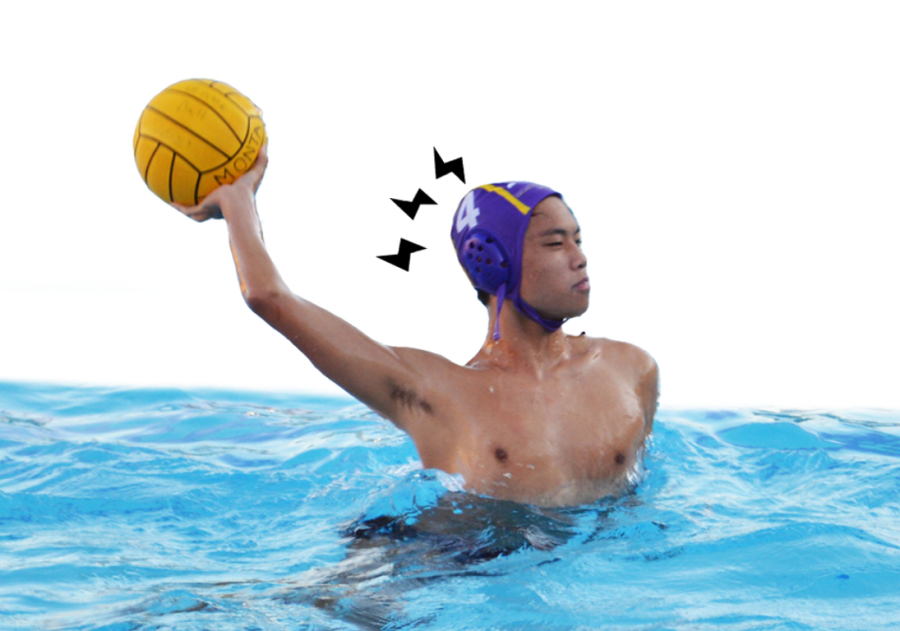Pushing through the pain
November 16, 2022
Crawling out of bed, senior Royce Wang makes his way to his desk to begin working on a pile of accumulated assignments before being struck by a splitting headache. Pulling himself to the bathroom, Wang is overcome with nausea, throwing up in the process. After receiving a concussion at an away game during the Boys Water Polo season, Wang only played in a few games during the season and tried to recover before the Boys Water Polo team entered its league games for a chance to qualify for CCS.
For Wang, the dilemma was whether to continue his recovery after the concussion or to help the Boys Water Polo team at league semifinals. Wang, being the backbone of the team’s defense, took it upon himself to serve his role to the end.
“League semifinals [were coming] and we were against [the] first seed,” Wang said. “There was no way we were winning without [me and Ryan].”
Senior Ryan Tang, like Wang, also received a concussion. However, acknowledging the threat Mountain View High School posed to MVHS’s qualification to CCS, both players made the decision to play despite the risks involved. According to Wang, sitting out might be detrimental not only to the team’s results but also to their dignity as athletes.
“We’d be betraying ourselves,” Wang said. “We’ve never gone to CCS before. We played for all four years and this was our last chance.”
Unfortunately, Boy’s Water Polo came inches away from qualification to CCS, ultimately falling to Mountain View High School in the semifinals. It was during that semifinal game where both Wang and Tang both received their second concussion just minutes after the game began, rendering them unable to play for the rest of the game.
During the same season, senior Karena Lai, a member of the cross country team, has also been enduring a serious injury for the majority of the team’s season. While Lai initially deemed the throbbing at her hip insignificant, she later found out that her hip was inflicted with an avulsion fracture. Despite her severe injury, Lai found it difficult to admit that taking a break might be the better course of action.
“I joined cross country because I want to be running,” Lai said. “If I’m injured, I [still] want to go back and run. It was really hard to push through that desire and force myself to stay out of it.”
English teacher and Girls Basketball Coach Sara Borelli competed in multiple sports from childhood to college, and has also pushed through several injuries. Borelli was able to do this due to her strong sense of being a team player.
“My mindset was the reason I kept playing,” Borelli said. “You’re not playing individually. If you’re not there, then there’s like a missing part of the team.”
Although cross country is an individual sport, Lai attributes both her and other runners’ hesitation to take a break from running to their passions for the activity.
“In general runners tend to [not] acknowledge [injuries], and say that they’re not injured and keep running through it,” Lai said. “I think running is something people like, so it’s really hard to step back.”
While severe injuries such as concussions and ACL tears require a doctor to clear the athlete to get back into play, Borelli says most players keep playing when they have minor injuries. However, Borelli understands that injuries can take a mental toll and could make athletes hesitant to play.
“For instance, if you sprained your ankle and you’re cleared to play, you [could] still [be] mentally locked because you have that psychological memory of the pain that [you] felt so you’re scared to play on it,” Borelli said. “I don’t want a player out there if they’re scared, so [they] have to rest and take the time that they need to get back mentally and physically into the situation that they need to be [in].”




























